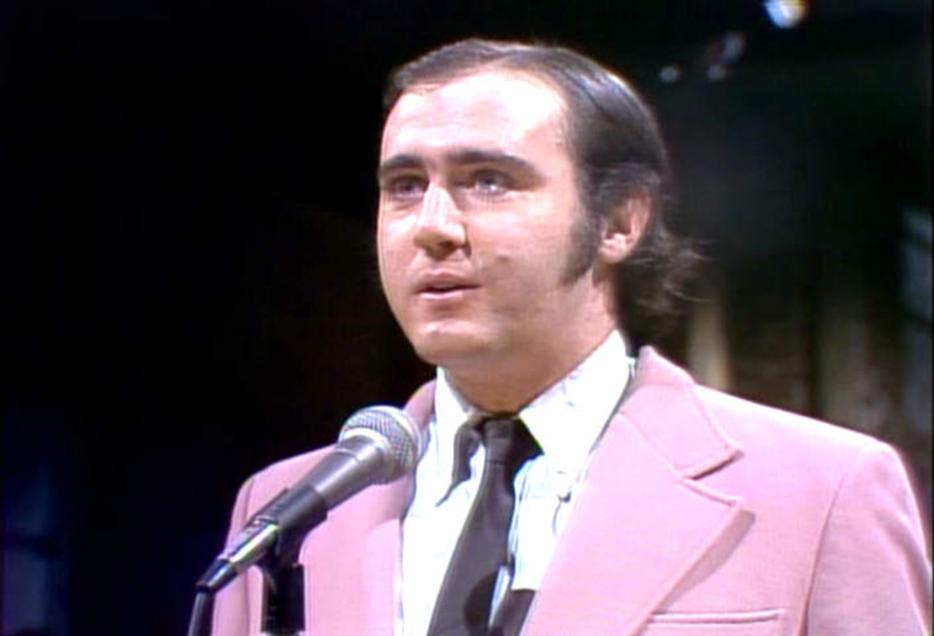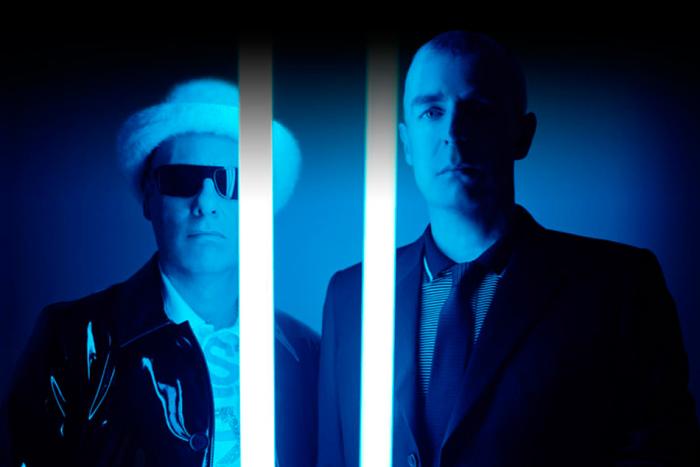Andy Kaufman has just released his first comedy record, a remarkable feat since Mr. Kaufman has been dead for almost 30 years. Andy and His Grandmother is not an album in the traditional sense, but then again, Kaufman was not a traditional comedian.
When he first broke in the mid-’70s, Kaufman was embraced by shows like Saturday Night Live for his approachable absurdism. His sketches were conceptual, and clever, but in a way that made audiences feel smart for being in on the joke. In those early appearances, his signature was a character called “The Foreign Man”—Kaufman would begin his set in a thick, unplaceable accent and pretend to be an inept stand up comic, telling poorly executed jokes imploring viewers to “Take my wife! No please, take her.” The ultimate punch line came halfway through the routine, when The Foreign Man would burst into a flawless, five-minute Elvis Presley impersonation. At the end, Kaufman would return to the accent, greeting audiences with a chipper, “Tenk you very much.”
Like Steve Martin and other silly subversives, Kaufman found his way into the mainstream. He was cast on the show Taxi with Tony Danza; fans on the street began demanding he perform his “signature bits.” His response was to thoroughly alienate his new audience. As his star rose, Kaufman began treating his life as though it were a conceptually dense performance piece. He challenged women to wrestling matches on television. He went on stage in front of thousands of screaming fans and read The Great Gatsby cover-to-cover in a mock English accent. Many of these stunts curdled public opinion, jeopardizing his career while adding another layer of comedy only visible to Kaufman and a select group of friends and fans.
A lot has been written about Kaufman’s motivations—including a biography by his best friend and writing partner, Bob Zmuda—but no one has really answered the question: was he a genius, or just an unhappy person discomfited by fame? Kaufman rarely talked openly about his craft or his true personality, and if he did, he peppered his remarks with half-facts and grotesque self-parody. As Julie Hecht writes in her book Was This Man a Genius?, Kaufman was reticent about himself with journalists, and would complicate his answers by flirting aggressively with the interviewer or by describing outlandish plans, like joining the Rockettes.
Kaufman died suddenly in 1984, from a rare form of lung cancer, despite never having smoked a cigarette in his life. He’d been so insistent about blurring fiction and reality that the public barely knew how to process the rapid deterioration in his health. Newspaper editors refused to run stories about his cancer diagnosis, gun shy after reporting other grand lies as fact. Members of Kaufman’s immediate family are known to have questioned the doctor who delivered the news, thinking it was yet another tasteless prank at their expense.
There is a conspiracy theory, often repeated, that Kaufman faked his own death—a nuclear gesture when nothing else he was doing seemed to shock audiences anymore. In a disconcerting episode of Marc Maron’s WTF podcast last year, Zmuda repeated the death hoax theory until Maron broke down and started raising his voice. “Seriously,” he asked, again and again, “you saw Andy’s body in the coffin, right?” In what is, one hopes, not a viral marketing campaign for Andy and His Grandmother, the hoax rumors have cropped back up in a major way this summer, with a group of Kaufman’s fans and friends (calling themselves “The Disciples”) claiming they have evidence that Kaufman is alive in Albuquerque, New Mexico. They have Loch Ness Monster-style grainy photographs and everything, a tabloid tribute befitting the Elvis-obsessed comedian.
Thing is, this premise is totally in keeping with Kaufman’s other provocations. In all likelihood he would have appreciated the hoax, even though it has been called annoying, desperate, and totally inappropriate. By his own admission, Kaufman borrowed much of his philosophy as a performer from professional wrestling. He liked the way that wrestling didn’t mollify viewers—it made them participants, getting angry when heels won and experiencing catharsis when story lines were resolved justly. In a similar way, Kaufman was a lot more interested in provoking a strong reaction than an adoring one.
His biggest crib from the WWF was the idea of “kayfabe,” which dictates that nothing in the performance should ever be acknowledged as fake. Wrestlers aren’t allowed to have public personal lives—their feuds and fights always have the thin veneer of realism. Kayfabe, like Kaufman’s act, has a way of butting up uncomfortably against reality, as when wrestler Owen Hart was accidentally killed in the ring. But what scholars, including some philosophers, argue is that kayfabe is not so different from the way our brains construct reality: filtering out uncomfortable truths and accepting irrational ones to help us operate.
Andy and His Grandmother is culled from over 80 hours of microtape that Kaufman recorded throughout his career—there’s audio of him hanging out with family members, calling friends, and harassing strangers, and it’s unclear the extent to which everyone is in on the joke.
The record is being promoted as a revealing look into “the heart of Andy’s comedy”—tapes that prick small points of light into his unique working methods—and like all posthumous releases, Kaufman is not the sole author of the work here. The raw material he left behind has been arranged by two collaborators: comedian and Wonder Showzen creator Vernon Chatman, and documentarian Rodney Ascher, who made the Shining conspiracy theory documentary Room 237 earlier this year.
In the right hands, a posthumous collaboration can be a rare window into the process or private life of an artist. Steven Soderbergh masterfully edited footage of Spalding Gray workshopping new material into the documentary And Everything is Going Fine, which showed the the subject coping with sudden mental decline. Mitch Hedberg’s last album, Do You Believe in Gosh, was edited by his widow Lynn Showcroft to present not only the comic’s perfectly constructed one-liners, but also the revealing audience interactions that occurred after some of his many on-stage duds.
Andy and his Grandmother is less revealing. There are some unguarded moments, as when Kaufman tries to persuade the titular grandmother that their work-a-day conversations would make for a great album, one he promises would be perfect for “Columbia Records,” who he claims to have a contract with. There is a long discussion with an unnamed woman post-coitus, done like a talk show interview, where Kaufman repeatedly prods her to explain their lethargic session together. On another track, we hear Kaufman prod a crazed fan, or possibly a jilted lover, on the telephone. “I have to go,” he says at one point, “my cereal’s getting cold.” The weak excuse makes her apoplectic, which prompts more taunting back and forth. Then he begins speaking in an English accent and pretending to be a different person altogether.
The album is, in this way, another extension of Kaufman’s body of work, another piece to makes him easy to admire, but very hard to love. Would Kaufman actually tape his girlfriend after they had sex? Would he really make a record of harassing prostitutes on a busy New York street? Chatman and Ascher have arranged the tapes with some context, short interludes narrated by Saturday Night Live’s Bill Hader. But for the most part, the bits are unexplained: curious recordings that exist somewhere on the continuum between staged pranks and real life. Andy and His Grandmother blurs the edge of the frame even more, providing another suggestion that Kaufman’s personality and his personas were never fully separated. The Kaufman kayfabe lives.






